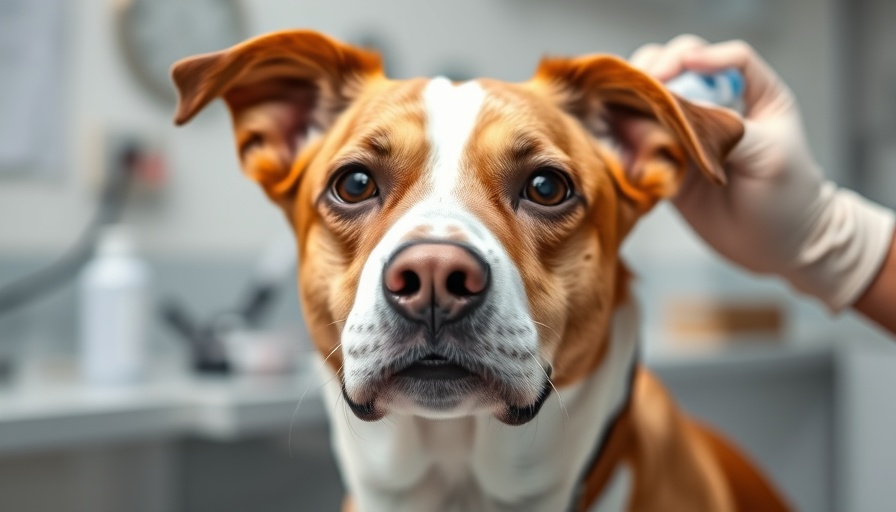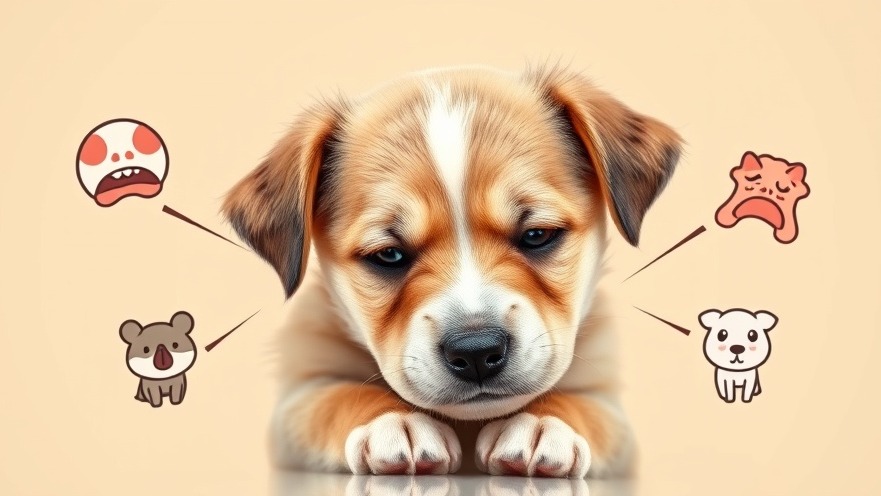
Understanding Norovirus and Its Impact on Pets
For many dog owners, the thought of their furry friends falling ill is heart-wrenching. Among the numerous health concerns, one that stands out is norovirus—a stomach bug typically associated with humans. As it turns out, dogs can indeed contract norovirus, spreading it to others in their environment. But what does that mean for our beloved companions, and how can we protect them?
Can Dogs Catch Norovirus from Humans?
Norovirus is famously known for its resilience and ability to spread swiftly among groups, particularly during winter months. While it's a significant issue for people, you may be surprised to discover that dogs share vulnerability to this harsh virus. Just like their human counterparts, dogs can suffer gastrointestinal troubles due to norovirus. They can become infected through contact with the feces of an infected dog or even through close interaction with humans carrying the virus.
Recognizing the Signs of Norovirus
Canine symptoms can mirror those in humans, causing mild to severe gastrointestinal disturbances. Signs to observe include:
Vomiting
Diarrhea
Dehydration
Abdominal pain
Nausea
Unlike parvovirus, which can be deadly and manifests with distinctive signs, norovirus may only yield vague symptoms. Thus, being vigilant and responsive is key for dog owners.
What to Do If Your Dog Shows Symptoms
If your canine companion begins exhibiting symptoms of norovirus, maintaining hydration is paramount. Since interventional treatment is supportive, providing fluids—via oral or veterinary care—plays a crucial role in recovery. Monitor their condition closely, and if symptoms persist for more than a day, consult a veterinarian, especially if multiple pets show signs of illness.
Prevention: Keeping Your Dog Safe
One effective method to prevent norovirus transmission is through regular sanitization of your dog's environment. Ensuring to clean up their waste immediately minimizes the risk of spreading the virus to other dogs or unwittingly to yourself and your family. Routine hygiene practices, such as handwashing after handling your dog and avoiding communal dog areas when sick, can help keep the virus at bay.
The Importance of Veterinary Care
Diagnosing norovirus in dogs can be tricky. Some cases require veterinary diagnostics, especially in settings like kennels or daycares, where the virus can spread rapidly. Testing methods, including polymerase chain reaction (PCR), can provide specific identification of the virus. It’s essential to seek veterinary care for stubborn and severe cases to ensure your pup receives the best attention.
A Broader Perspective: Norovirus in the Community
As we navigate pet health, the broader community should note that norovirus does not only affect pets. Human health systems have been overwhelmed at times due to norovirus outbreaks. Understanding how easily the virus can transmit among species reminds us of the intertwined nature of animal and human wellness.
Final Thoughts on Canine Norovirus Risks
Being aware of norovirus and its potential impacts on our dogs, as well as on the community, serves to remind us of our responsibility as pet owners. With vigilance, preventative measures, and proactive veterinary care, we can ensure our fluffy friends remain healthy and thriving.
With shared responsibilities, let’s keep an eye on our dogs and foster discussions around their health and wellness. Together, we can create safer environments for our pets and ourselves.
 Add Row
Add Row  Add
Add 




Write A Comment